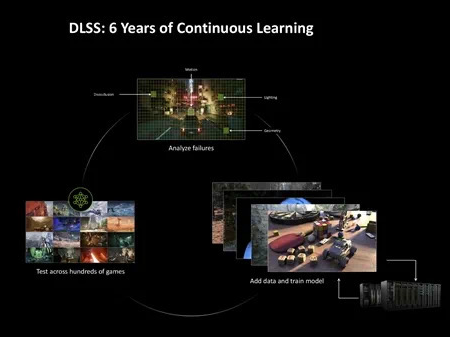NVIDIA Reveals the Evolution Behind DLSS: Six Years of Non-Stop Work by a Supercomputer
 January 21, 2025
January 21, 2025
On January 20, 2025, NVIDIA unveiled the technological support behind DLSS, which significantly boosts gaming frame rates—thanks to a dedicated supercomputer designed for the continuous improvement of DLSS technology.
Brian Catanzaro, NVIDIA's Vice President of Deep Learning Research, disclosed that thousands of the latest GPUs have been running around the clock, analyzing and optimizing this groundbreaking technology that transforms game graphics. He stated, "We have a large supercomputer equipped with thousands of our latest and most powerful GPUs, operating 24/7 for six years, constantly enhancing DLSS."
The primary task of this supercomputer is to analyze issues such as ghosting, flickering, and blurriness within DLSS, optimizing performance across hundreds of games.
DLSS 4 introduces a multi-frame generation feature supported by the RTX 50 series and fifth-generation Tensor Cores, leveraging AI to generate up to three additional frames for each rendered frame. By analyzing previous and subsequent frames, it accurately predicts changes and uses AI technology to produce high-quality images, achieving an eightfold performance increase compared to traditional rendering.
Additionally, DLSS 4 incorporates the first real-time application of a Transformer model in the graphics industry, featuring twice the number of parameters and four times the computational power. This results in greater stability, reduced ghosting, enhanced detail, and improved anti-aliasing capabilities.
DLSS 4 also introduces a new AI model that increases speed by 40% while reducing memory usage by 30%. For instance, in "Warhammer 40K: Darktide," this method boosts frame rates by approximately 10% while lowering memory usage by 400 MB at 4K resolution settings.

